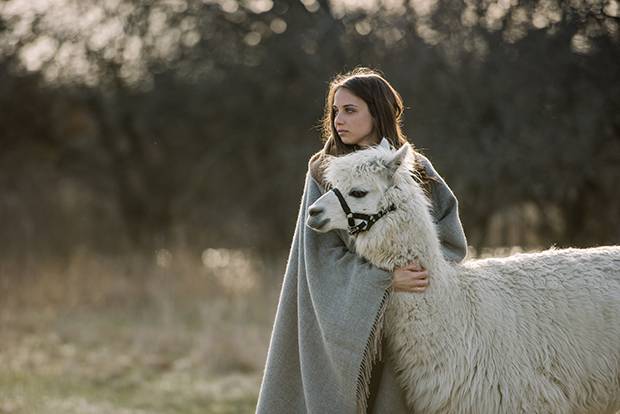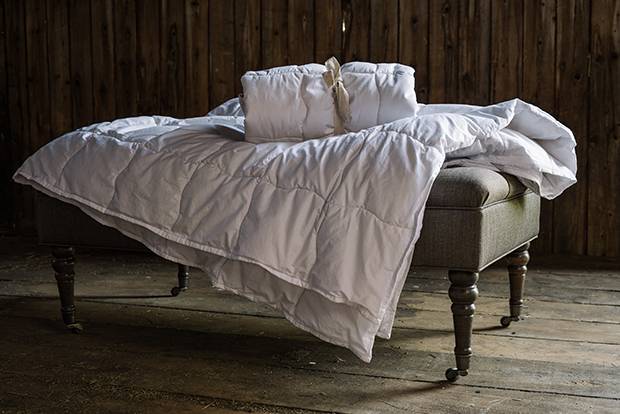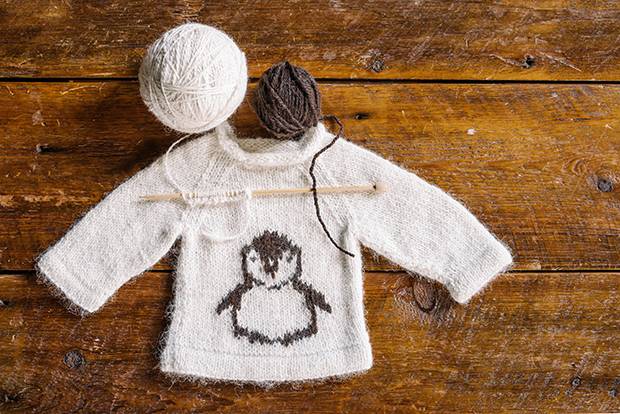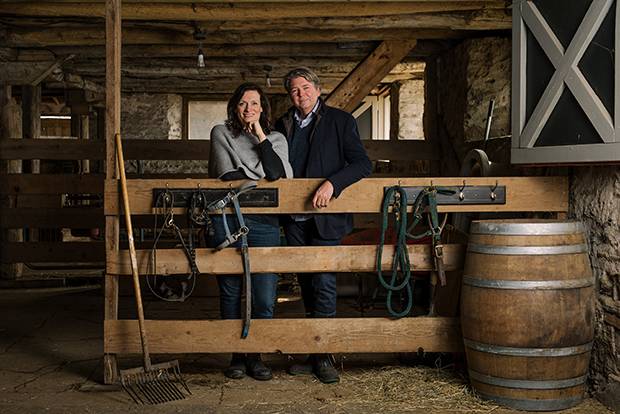On a road trip in upstate New York, I once detoured to the former 19th-century spa town of Sharon Springs to buy a $20 spoon. In fairness, it was an unusual pewter alloy, hand-moulded and based on an 18th-century fruit spoon design. (Or something like that.) This was several years ago when farm brand Beekman 1802 was still a fledging enterprise, well before NASDAQ named it one of the fastest-growing lifestyle brands in the U.S., but shortly after Beekman co-founder Brent Ridge had been working virtually around the clock, maintaining the goat farm and making cakes of goat milk soap as fast as he could sell them to well-heeled Manhattanites in order to keep up on mortgage payments.
Ridge, a physician, is the former vice president of the healthy living division at Martha Stewart Omnimedia, a job that didn't survive the 2008 economic downturn. Nor did the job of his now-husband Josh Kilmer-Purcell. Financial circumstances forced the duo out of New York to the 19th-century farm they'd purchased in 2007 as a weekend getaway. They were faced with a choice: make a go of it or lose it all. When a neighbouring farmer in a similar plight needed land for pasturing his herd, the city slickers became accidental goat farmers.
The Beekman boys branded their first item in 2009 – goat milk soap, because it was easy to make – and by the time Beekman 1802's print-only quarterly launched in the fall of 2015, the publication, and by extension the lifestyle brand behind it, was dubbed the hottest newcomer by AdWeek and other industry heavies. Today, the company acts as an umbrella brand, a sort of distributor-imprimatur for local artisans. Its FarmHouse furniture line at Target and the more mass-market bath and body care ranges (with scent names like "Fresh Air") it sells on The Shopping Channel in Canada are balanced with small-scale production from ceramicists and woodworkers.
The lesson for others: If you're buying the farm, saving it can depend on how well you sell it.
Such is the emotional allure of the imagined bucolic life as both entertainment and branding concept that last year several British supermarket chains came under fire for creating fake farms as product branding names to mislead consumers. This spring, France's BHV department store opened a rooftop farm at its Paris flagship and is selling related products.
Today, dozens of Beekman products bear the tagline "Clean and simple. Just like country life." But make no mistake, it's sunrise to sunset labour, and while many may yearn to live the simpler farm life, most think better of it and are content to double-tap "like" on that image of lens flare over the barn and buy a spoon instead.
Unlike Beekman farm, Ted Pickering and Shauna Seabrook's alpaca farm in Prince Edward County, Ont., is open to the public and visits both virtual and real are part of their marketing and business plan. They bought the land in 2007 and added a small herd of alpaca five years ago. "We were looking for something that would satisfy that minimum requirement farm status, so as a folly we thought, 'Well, Shauna knits, we could shear the fleece,' and thought it would be the kind of business that [would keep us busy] as we rolled into retirement," Pickering says, with a laugh. "Except each only produces about eight to 10 skeins of yarn annually, which is really the equivalent to one generously knit sweater. It became very obvious very quickly we needed to supplement it."

Pickering and Seabrook’s alpaca farm in Prince Edward County, Ont., is open to the public and visits both virtual and real are part of their marketing and business plan.
Chetwyn Farms has a plum location near the region's top wineries and a local lavender farm, and as they watched the cars rolling by they thought, "Holy cow we should open a shop!" Pickering says. Both in their 50s, the couple have career backgrounds in product development and non-profit fundraising; Pickering's work as a retail consultant also came in handy close to home. To figure out the demographic and test product offerings ("whether somebody would actually pay $300 to $500 for a blanket," he says – and yes, many have), the pair first operated a booth at the local farmer's market.
Today they have their own range of alpaca accessories and related products under the SHED banner as well as acting as stockist for a few local favourites like Stacey Hubbs' Edible Antiques heirloom seed packets. They're also developing collaborations with designers like artist Kate Golding in Picton and Alicia Adams in New York. The skeins of yarn bear their source animal's name. "Shauna would like to do size-sensitive clothing but we don't do sweaters right now because you're managing inventory," Pickering says. "Suddenly you're not a little farm shop in a chicken coop any more!"

Over the past decade, Pickering and Seabrook’s farm property has become the base and inspiration for SHED, their line of yarn, housewares and accessories.
In recent years, Pickering had noticed the evolution of experience-based retail, and says the alpaca experience on the farm isn't that different from a winery visit and tasting. "It's really about the sensibility. If you're buying a $32 tea towel, it's a remembrance of your day at the farm and it captures completely the feeling and flavour of the experience." The rustic shop is at the sleek new entrance of the farm, but "we're not a petting zoo," Pickering cautions. "We're a farm first, and the way the shop is positioned takes advantage of the views into the paddock. It's a very natural sort of setting." They select the animals in their display herd with care, "choosing for colour, and have all the sub-looks like whites, blacks, greys and caramels," he says.

Pickering and Seabrook have their own range of alpaca accessories and related products under the SHED banner as well as acting as stockist for a few local favourites.
It's fitting that Chetwyn Farms commissioned the hand-woven blanket that was presented, during the royals' recent visit to the County, to the Prince of Wales on behalf of the Upper Canada Fibreshed, a regional association that supports sustainable agriculture and the small-scale textile industry. In addition to the launch of his promotional Campaign for Wool initiative in Britain, the Prince of Wales started the now-bestselling Duchy Originals brand (named after his Duchy of Cornwall title) as a small-farm organics and lifestyle brand on his Highgrove Estate in 1990.
While the products and lifestyle these farms sell may seem fresh, it's still old-fashioned hustle that makes it work. "Our social media – Facebook and all that – is integral to what we're doing on the farm," Pickering says. "Instagram is a farm chore now."
Visit tgam.ca/newsletters to sign up for the Globe Style e-newsletter, your weekly digital guide to the players and trends influencing fashion, design and entertaining, plus shopping tips and inspiration for living well. And follow Globe Style on Instagram @globestyle.
